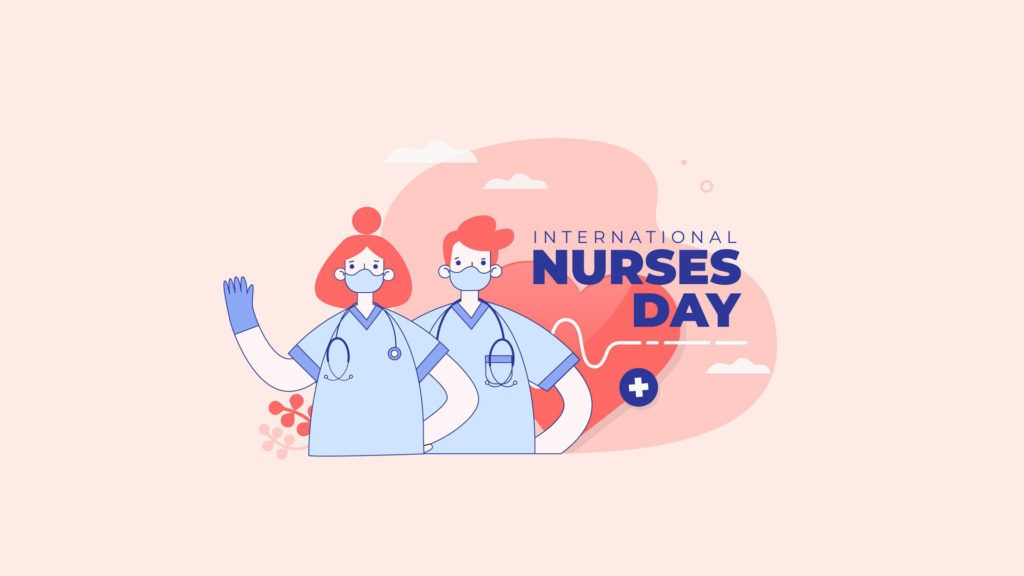Every individual has a limited pool of resources (physical, cognitive and emotional). Hence, we can work with focus and dedication for only a fixed amount of time. This duration varies among individuals. In addition, we also require breaks in between work to rejuvenate. When we are not granted these breaks, we put more burden on our system than we can handle. When this burden continues for a long duration of time, we may be at high risk of facing mental health challenges. Now think about a nurse. He or she spends around 8 hours (or more in some parts of the world) attending patients. They need to do tasks that require high levels of cognitive and motor precision. In addition, due to the absence of regular leaves, they often do not have the time to rejuvenate. Hence, nurses are at a very high risk to suffer from mental illnesses.

Let us now see some statistics about mental health issues of nurses:
- 18% of nurses experience depressive symptoms.
- 83.9% of nurses working in ICUs experienced high levels of occupational stress.
- 10.7% of nurses working in ICUs experience moderate levels of occupational stress.
- Nurses are at a higher risk to experience symptoms like compassion fatigue, social dysfunction, maladaptive coping strategies, burnout, insomnia and many more.
Contents
Depressive Symptoms
As per data gathered by the Robert Wood Johnson Foundation Interdisciplinary Nursing Quality Research Initiative (INQRI), nurses are at twice the risk of developing depressive symptoms when compared to the general population. Despite such a high rate of occurrence of symptoms, nurses seldom seek clinical help. This is because of the social stigma attached to mental illnesses. They may fear that if they are diagnosed with clinical depression, they might lose their job. Nurses are in a traditional care-giving role. Who would like to trust a nurse who has clinical depression?
In addition, nurses are often unaware that they are experiencing depressive symptoms. Most nurses work more than 8 hours a day. Hence, they hardly have time for self-introspection and self-care.
Why do so many nurses experience depressive symptoms?
Ignoring initial and mild symptoms is probably the number one cause of the wide prevalence of depressive symptoms in nurses. The occupational value of nurses is to care and nurture the sick. They sometimes attend to terminally ill patients, who probably have no hope for survival. Those working in the emergency department often attend victims of accidents, fire and violence. Such a vicarious experience of severe suffering often puts them in a vulnerable position. This vulnerability and emotional burden increase exponentially because of the lack of mental health care facilities for nurses in the hospitals.
Secondly, nurses work in shifts. Sometimes they work in day shift, sometimes in the evening and sometimes at night. As a result, they often do not have a regular sleep and waking cycle. Sleep deprivation, coupled with overwork may be a precursor to depression.
Nurses have to be on their toes all day. Unlike white-collar employees who have coffee breaks in between working hours, nurses have to work constantly. In addition, their work requires a high degree of precision and accuracy. For instance, the cost of making a mistake is so high that they may end up losing their job. This puts a constant cognitive burden on nurses which may manifest in depressive symptoms.

Occupational Stress
Nurses experience occupational stress in three main forms: physical stress, cognitive stress and emotional stress.
Physical Stress
Nurses work long hours. Their tasks put substantial physical strain: bending, lifting equipment, pushing a wheel chair, taking patients to washrooms, etc. In addition, they have to carry out each of the activities with precision, accuracy and speed. They cannot afford to make an error.
Further, the general lifestyle of nurses is also unhealthy. They work in shifts, which change every day. This prevents them from having a regular circadian rhythm. Lack of regular sleep and waking patterns opens up the possibility of having digestive distress, insomnia and many more ailments.
Also, nurses spend a long part of their day in the hospital, where the chances of contracting an infectious disease are high. We all know about the nurse who sacrificed her life caring for Nipah Virus. Currently, in the times of Covid-19, nurses are constantly fighting the disease as well as the fear of contracting the deadly disease themselves.
Cognitive Stress
The need to be available all the time seems stressful. Nurses need to be available for patients whenever they need help. In many hospitals, there is a bell that patients ring when they need help. Nurses have to be attentive all the time so that do not miss the call. In addition, they need to be very attentive and careful when they are giving medicines to patients. We all know that a nurse attends to multiple patients at the same time. Hence, they cannot afford to mix up prescriptions. The demand for cognitive resources is hence huge because they have to be proactive all day.
Emotional Stress
Care-giving is an emotionally exhausting activity. Nurses are constantly exposed to suffering, illness and trauma. There are terminally-ill patients, with low chances of survival from all age groups. Violence and burn victims also experience significant injuries. It is emotionally arousing for us, who are reading or watching that news. Can we even imagine how it feels to attend to such victims constantly?
Further, frequent encounters with death pose an entirely different challenge. Nurses are not expected to weep or express grief when a patient dies, even though they cared for them for days or months. All this poses a huge amount of emotional burden on nurses.
Compassion Fatigue
We experience fatigue when we stand for a long time or sit and work on the computer for a very long time. Nurses are constantly being compassionate towards patients and their relatives. Just imagine how much compassion they are exhibiting per day. Isn’t it natural for them to experience compassion fatigue?
Compassion fatigue refers to a state where the individual expressing compassion reaches such a point that being more compassionate is emotionally draining for them. Nurses are at a very high risk of compassion fatigue and it is in no way less stressful than depression. Compassion fatigue in nurses negatively impacts their mental and physical health, their patients and the entire health care system.
Conclusion
In sum, nurses toil day and night to provide us with better health care facilities. This International Nurses Day, let us all pledge to give them the respect and honor that they rightly deserve. This will gradually help in making nurses’ mental health better.

Major thankies for the post.Really thank you! Much obliged.